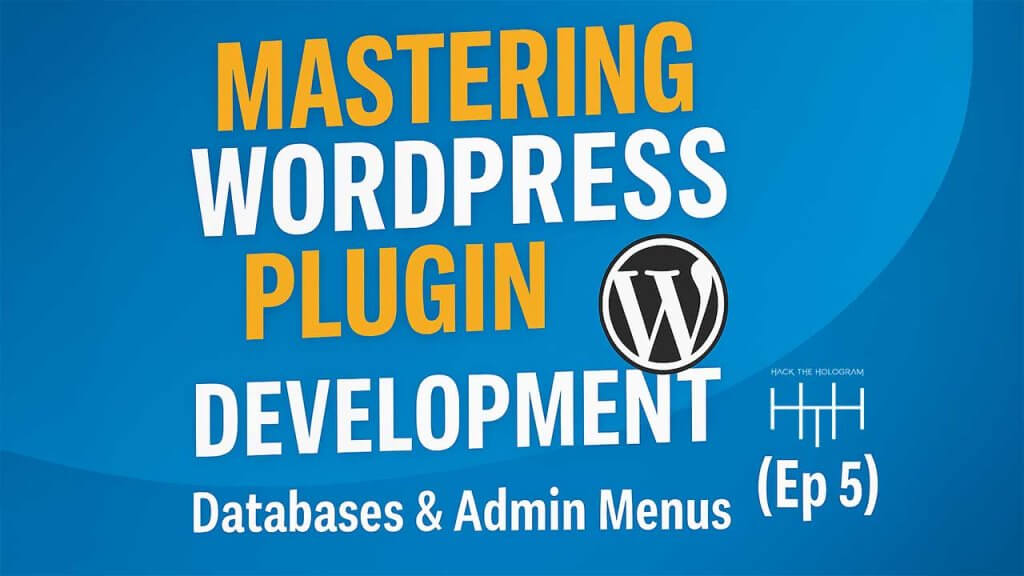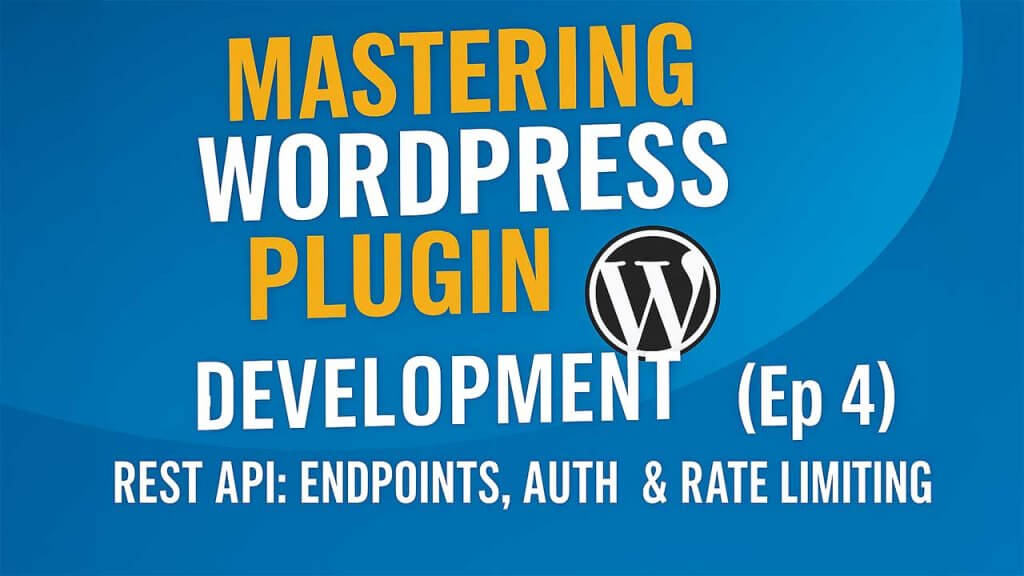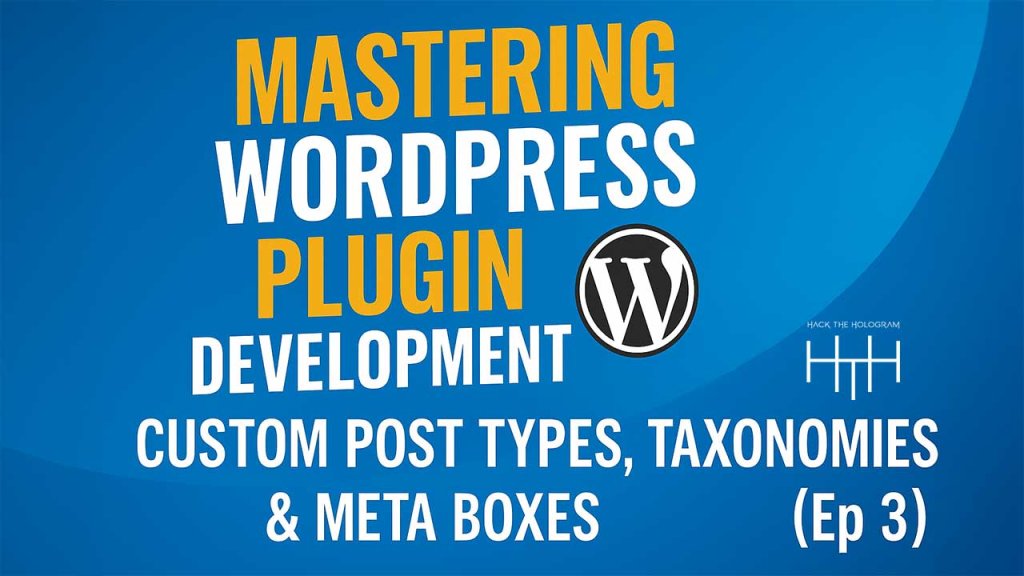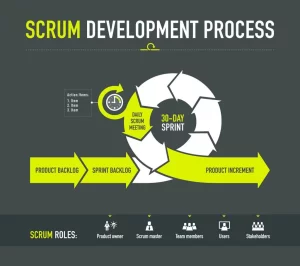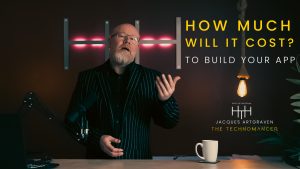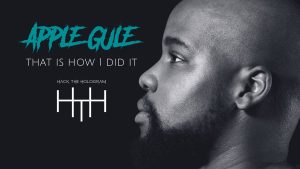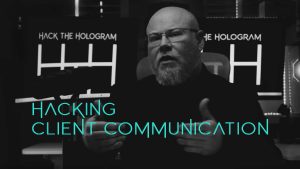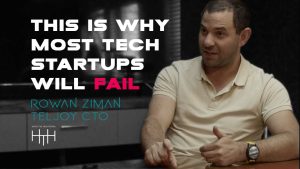1. Mindset Trumps Strategy
No matter how many strategies or tutorials are available, real progress is blocked by psychological limitations. If your beliefs limit your sense of self-worth or possibility, no tactic will ever be enough.
2. Self-Worth Dictates Action
Most people aren’t lazy—they’re held back by subconscious belief systems formed from trauma or past conditioning. Raising self-worth is the key to consistent, confident execution.
3. Value is Perceived, Not Measured in Hours
Shifting from a 9-to-5 mindset to entrepreneurship requires reprogramming how we view value. Time spent is irrelevant—outcomes and problem-solving define worth in the business world.
4. Proving Value vs. Creating Value
Many freelancers focus on “proving” they’re good enough rather than building frameworks, systems, and stories that inherently show their value. The latter is scalable and sustainable.
5. Positioning is More Important Than Skill
Less skilled people can—and do—succeed more simply because they position themselves better, market more confidently, and reach the right audience with clarity.
6. Systemization is Freedom
If your business depends on you, it’s a job—not a business. Systems allow for delegation, scale, and the ability to sell or step away from the company without it crumbling.
7. You Have the Right to Fire Clients
Not all clients are aligned, and taking on misaligned work drains time, energy, and brand integrity. Part of valuing yourself is knowing when to say no and walk away.
8. Proof of Work Attracts More Work
Even free or unpaid work is valuable if it creates a powerful case study. Testimonials, documented results, and video breakdowns build credibility faster than any cold outreach ever will.
9. You Don’t Need Money to Start—You Need Time
Most successful agencies didn’t begin with huge budgets; they began with commitment, extra hours, and leveraging free or low-cost tools to build presence and portfolio.
10. Niche Expertise > General Exposure
A small, highly targeted audience who deeply needs your offer will convert better than a massive audience that doesn’t. Fame doesn’t equal conversion.
BREAKDOWN
So chances are if you clicked on this video, you’re probably in the mindset that there has to be more than 9 to 5. Or you’re already actively looking at that and maybe you’ve got a specific skill set and design or web development where any of the big agency skill sets and you’re looking to make that transition. Well, if that’s you, this video is for you.
I’m Jacques Artgraven, I run my own digital agency. I’ve been across the board working with different clients, from beginning startups to major companies of major companies in the fintech space, in the medical space, both locally and internationally for the last heading to three decades. I’ve got a little bit of knowledge in this space. I think you’re going to find it useful.
So sit back, relax, and let me show you how to become a Technomancer.
So you’re going to hear me throw that statement out a lot on this channel. The idea of a technomancer. And to me to take the answer. It’s kind of like a one person digital agency. It’s somebody that specializes maybe in one skill or maybe in a set of different skills. But is somebody that can pretty much come to play in managing either themselves with multiple skill sets or a team of people with multiple skill set?
And the real idea behind that is that just with the age we’re moving into, the age of the technomancer, the age where we create magic, quote unquote, from technology, and that’s where we are today, right? You can build a company pretty much with AI, assuming you’ve got the foundational skill sets. The idea, if it’s a one click start thing, is a nice fantasy for lazy people, but it’s the modern day get rich quick scheme we all know, and anyone that’s close to the technology knows it’s far more complicated.
But enough of that. Let’s get into the core topic today, which is making that transition from your 9 to 5 into the agency world or into the freelance world, because you might be coming from this, some of those two different approaches. Number one, you’ve got a skill set and you’re moving into freelance, but you’re trying to really figure out how to manage this.
You’re kind of finding yourself stuck. Mean you talk a lot about the psychology here. These were mindsets that I had to shift and transition. And, or you may be already in that process and you want to scale working with more people because you want to build into the agency style, but you keep kind of falling below the range.
You’re not you’re not breaking paths to certain income barriers. You’re not breaking balls, a certain kind of clientele or market. And that’s really what we’re going to be diving into. And I think for us to really go there, we have to start with the single most important thing of it all the psychology, your mindset. And it may seem stupid for a lot of people looking at this thing go like, you know, I’m looking for the strategy, I’m looking for the technique.
But the fact of the matter is, there is a lot of programs and courses and YouTube videos out there teaching you various strategies. Yet people still aren’t successful in them. And I’m sure a lot of those are those typical get rich quick schemes that don’t really come to front. But the biggest problem is that people aren’t taking action on them.
And the reason people aren’t taking action is not necessarily because they’re lazy. It’s very easy for us to kind of put that label on or just think that people are dumb or even think that about ourselves, that we’re just really not that motivated, really not cut out for it. And it’s not at all the case. The fact is that your belief systems will determine your actual potential to take action.
So if you’re not able to take action, if you find yourself sabotaging in the spaces where you know you should be doing more, chances are very, very likely that there’s either a a serious traumatic event there, something that’s preventing you and that is most likely tied to B, which is a belief system that is resulted from this, the kind of belief system that says your value is equated to the time spent.
The other kind of ideas, maybe things like you can’t really make it or it’s other people. It’s a skill set that you don’t have. The fact of the matter is, we live in a world where 17 year olds are making millions on the internet within the age gap seems to get younger. And the other thing you’d notice is that most of those people probably have less skills than you do.
In fact, this is a great transition for a lot of people when they actually start looking at some of the people that are making great bang for buck, that don’t have their skill sets, don’t have their years of experience, don’t have their ability or their passion, and they’re still doing it. And it’s really at this point in time where, given the internet access that you could reach clients across the world, you’re no longer restricted to your job grapheme.
It shows us that it’s and it’s clearly obviously not a skills gap. It shows us that it’s more of a belief in a reach gap and the reach is because of the belief. You see, if you’ve got low belief in yourself and your value, you’re not going to do what I’m doing right now, right? You’re not going to put yourself on the internet, talk about your product, talk about your value, share your ideas, expose your personality or your tattoos.
Trust me, I hardly ever even show these things to most of my clients. And it’s not because I’m shy for it, but it’s because I respect my clients. Some of them don’t share my views, share my beliefs, and I don’t have to impose that. That may not be you, right? We all may have very different perspectives here in the show.
I’m going to be very honest and vulnerable with you. I’m going to tell you the truth of my journey. I’m going to take you through a lot of experiences. So yeah, you’re going to see some of my ink. But the fact of the matter is, the belief that you have in yourself, in your capacity, determines how much of yourself you’re winging willing to bring in the front.
And the truth is, if you’re reaching a larger group of people compared to the next person, or the same group of people compared to another person with the same type of skills, the difference of them picking them over overused, just simply going to boil down to personality. Now, if you’re able to demonstrate your personality, your qualities, your values, your belief systems, your frames, people are going to be able to perceive that and they’re going to be linking their internal values to you.
So the first idea there is the raising of your self-esteem, the raising of you. In other words, the fundamental belief that you can do it all. An old classic book, Thinking Grow Rich by Napoleon Hill. That was one of the first principles, right? It’s all classic in the positive thinking domain that simply says that the first step to success is a sense of certainty about your ability to achieve the success.
So whatever your dream desire you want, whether it’s to build an agency, to become a successful freelancer, to grow whatever Brad or company or product you’re doing, the prerequisite is a sense of certainty, which is simply a belief about your capacity to achieve that. So you could be looking at the world saying, oh, you know, these people have more experience, they have more money, they have more this.
And all you’re doing is you’re psychologically discrediting the what could potentially be a new neural network, a new framework on how to perceive reality, because that’s how our beliefs filter how we experience reality. And in fact, a very interesting study was done with a group of women who went through an experiment where they said they’re going to put scars, marks on their face and to see the criticism of an interviewer and the judgments and before they went out to go for this, the segment, the people pretended that they were going to just touch up the makeup.
But what they actually did is they removed these scars and they just kind of left them looking good. And when they came back from it, they were they had evidence. They had stories that examples of how they were discriminated against because of these marks on their face. Meantime, there was nothing even on their face. We do the same thing in many areas.
Your pre determining your value when you’re entering a conversation with people because of your self-esteem or your self-concept. You see, and this is one of the biggest problems where making that shift from the 9 to 5. You see yourself only in that value. You’re kind of a number in a company. In most cases. So it’s, you know, how many hours did you put in, you know, how could you make your coworkers feel, you know, did you or did you take any six days so your value starts to be determined through your qualification in certain instances, your years of company and the amount of hours that you put in, how much work you got done in
those hours. But this is a very different paradigm when it comes to business. You see, because the people that you work for in those situations, they’re not selling how many hours they can perform. Because if you’re going to compete on price and you’re going to compete on time, you’re always going to be beaten by someone else in another country with different circumstances.
Right? So that’s not really where it is. This companies like pentagram, that charge $1 million for producing a logo. Right. You can get a logo done for you on Fiverr for a few dollars versus that kind of money. But why? The why is the value you sell? It’s the value position. You see, one of the core difference here is that the typical employee is kind of in this scarcity mindset, right?
And not for everybody. You may love the career. I mean, I worked for many years with various companies, from Google to Bidvest to me to a variety of others, and I held very senior positions and I loved it. Right. I was getting an exceptionally great paycheck that was living a decent kind of life. I didn’t have straight salaries and there was a lot of stability.
I knew that money was coming at the end of the month. Very different ballgame when you suddenly switch over to entrepreneurship. Yes, the scale of amount of money you can make is far greater. Right. But that initial thing, because now you’re no longer relying on somebody else, right? You’re no longer begging for value, you’re no longer, you know, getting to a certain space and getting comfortable inside of that value.
When you switch over to entrepreneurship, you now have to extract value. You not only have to extract value, you need to identify pain, and you need to almost help people solve those pain points. So you’re going to be flexible. But fundamentally, this means you have a model of the universe that assumes there is infinite scale financial, there’s infinite scale of value, and you have the capacity to discover, extract and deliver that value.
It is a realization that the problem is different for every single person. Your value is not in the amount of hours that you can present. Your value is fundamentally in how much value does this have for the client in terms of the pain or the problem that they are solving? Right? I mean, that’s it. Like if you go into a company and they are quantum plating or thinking about moving a website on to a different service provider simply because that service provider has a better reputation with clients that they’re going afterwards.
That’s a certain kind of value spend. But let’s just say that server of theirs is just gone. Download that website has just gone down, and you’re the engineer that knows how to step in and debug that problem to get the site back online, your value proposition of what you can ask for is far superior. You know the other question, the other argument there is, what about it is just a certain skill set that you’ve got, right?
The same thing occurs here in the sense of your serving time, right? You’re saving the other person time. You’re giving them value. For example, they can go to any other person. Let’s just say it’s a WordPress site and your WordPress developer, they can surely go get their own WordPress site done by some guy off the internet. That’s a web designer that’s going to get a pre, done template and put that up.
And that’s fantastic. That’s great. That’s probably going to cost them a small amount of money to do. Maybe it’s $1,000, maybe it’s $500. It depends on obviously the climate in the country that you’re in. I’m in South Africa. So, you know, 10 to 20,000 rand. For a site like that. And it’s quick, it’s easy, they’re fast.
And their argument is going to be, my friend can do this for me in two hours. Why should I pay you an extra zero at the end of that to do the exact same thing? And that’s really where the educational point would be of their client, because they’re not attached to the value when they’re just starting out there and they’re just beginning in their business.
And that’s one of the big problems. You probably looking at the wrong segment of the market. You’re probably trying to solve problems because you’re trying to prove value instead of going out and solving, praying and creating value. So the difference is the one’s trying to prove their value. No, no, our price is better now. No, we can do this versus the other one creates value.
And give me an example. The creating value, the creating value individual doesn’t even bother with the entry 20%. You know, target market that’s going to just get up because they just need a website. They just need to get up and running. And that’s maybe completely fine for them. They want somebody that probably has more knowledge of the problem, you see, because the person with more knowledge of the problem is probably gone, that they’ve set up the quick website and then two weeks later they got hacked.
You know, there was spam on the website. The spam kept falling. There’s so many like, rubbish emails they couldn’t differentiate clients anymore. Their site was incredibly slow, and they started realizing the impact of this upon their business and their bottom line. Maybe there was, you know, credit card information and that got exploited and lost their entire company very, very different from the engineer or the more experienced developer that comes in and says, okay, that’s great what you want to you want a website, do you even need a content management system?
Do you even need this? Have you considered security? What are these processes around that? Now, when you’re coming in from that perspective, those are two very, very different conversations, the ones trying to prove their value so they could keep cutting down on prices. Not a lot. If you want to live the other one. Understand they were domain specialist, but more specifically they understand the pain the client’s going to go through before the client’s even gone through it.
And maybe and this is where the marketing comes in, the marketing side as they were ability to identify clients or should we call them user avatars? The user avatars or personas that have gotten that problem are on their way to that problem, and they’re able to go ahead and solve that problem for them, making the value. And as such, the price tag far higher in terms of the return.
Because let’s face it, I would ten times rather pay that extra zero for a company is going to set up my site and include a good reputation for me. I’m not going to get hacked, I’m not going to be vulnerable. I’m going to get decent performance and delivery time for my clients when it suddenly scales, because I’m doing a launch event versus the other one that was cheap, I got it up quickly.
I don’t really care about the fine details, whether it was consistent viewing experience and the degree of trust that actually achieves moving clients and then suddenly that thing breaks the moment I have that big launch event that I’ve been holding up for. And now what? I go back to the person that doesn’t have the skill sets, right? And he’s just going to keep he’s not going to be able to deliver.
And if you were that poor guy, you’re going to struggle yourself. But the reason I think most people don’t do this is because they tend to think that money is limited. They tend to think that clients are limited. The fact of the matter is, it’s not. You know, it’s a new study show that the concept of money is pretty much infinite scale.
And money is not a finite resource. It’s an ever flowing resource. And I’m not saying it’s not finite in certain regions, but anyone can have access to greater money by moving and accessing other areas. And, you know, if you’re watching this, you have access to the internet. So you’ve got access to all those markets. The other idea here is that infinite scale is that if you look again and this back to the beliefs, if you think people don’t have money, you’re going to try and sell to people that don’t have money and you’re going to verify or to get a testimony to your belief.
It’s same as the idea when you suddenly buy a new car and suddenly you see that car everywhere, right? Well, that’s because your reticular formation portion of your brain that’s responsible for your survival starts to identify these patterns inside of your world. And that you accepted this was a range of possibility. It now sees it everywhere. So the same thing is if you accept that there are possibilities of of the kind of coins that you want to work with.
But that brings us to the next component. So instead of trying to move from this, you know, trying to prove value to creating value and demonstrating value, there’s a completely different kind of mindset because the one is you’re so convinced and you’re so entitled, you’re so aligned to what the value you have as an individual that you’re able to demonstrate that you can demonstrate this in many cases, case studies, little apps and little solutions that you’re building, podcasts and things that you’re sharing your information on versus the other one is just trying to wait for somebody to see him.
It’s the old classic bad mentality, right? We’re going to suddenly be seen were suddenly going to be famous versus the one that’s actually just out there delivering value, creating value, pushing value. And that’s what the market is, right? Are you creating value and that’s it, right? That’s why, you know, a channel like this. That’s why all these other YouTube channels that you see, because all they’re doing is they’re pushing value.
Because in a market where everyone’s doing everything, you’re probably going to link to the one that sells you the most, as I’ve mentioned. But now the other part there is the other person may be producing value, may be pushing all of the stuff up, but you’re talking to the wrong people. You’re talking to the people that don’t have the money.
You need to be reaching the clients that you offer. And the only way you’re going to do that is by having a clearly defined user persona. In other words, you need to know who the people are that you’re talking to. Are you trying to reach CTOs? Are you trying to reach marketing agents? Are you trying to reach qualified leads within a certain income bracket?
Because this kind of knowledge will also help you determine where do you put your advertising, your bang for buck. You see where is an Instagram may give you a region or something like that for your focus. And in you can get specific income brackets for companies, right? You can get far more granular information and it depends on the platform in the focus.
And then on top of that is LinkedIn the right platform for you? Is YouTube the right platform for you? Is Facebook the right platform for you is tick tock. You shouldn’t be going on. These things are pushing your attention on these things because they seem to be popular. They may be very popular, but not necessarily with the audience that’s relevant to your service or your product.
And that’s a big, big difference. The people get really confused with following these trends. They think, oh, these people are doing it. I should be doing it. We should be hopping on the trend. The fact of the matter is, there’s a lot of people that are influencers that get large followings but have very, very poor conversion. You know, an a previous niche of mine, I had a YouTube channel where I did something like 10,000 people, was a very, very niche kind of product.
And there was a competitor of mine in that same that she had over 120,000, followers in his one stall small, you know, in comparison to some of those other channels, but extremely niche. The difference between my channel and his channel is his entire 150. He had something like 3 to 10 people overall convert in his entire process.
That’s a very, very small ratio that we’re looking at for conversion were below percent, whereas my conversion percentage was 30% up, right. Ended up. And these were high ticket products. So the difference though is not necessarily nearly the message. The difference is are you talking to the right people? We’re both in the same market. But I understood who exactly my client is, what kind of conversion I wanted, who do I want?
So ask yourself, who are the kind of clients you want to work with? What is their personalities like? Because this also allows you to funnel for that. Now you have the ability to help somebody get onto your website or get on to your sales funnel, get onto your forms and you get to qualify for that. Are you a micromanager?
Right? Do you have a budget or why budget? Why do you have to report with a team of a broad team? Do you have a clearly defined objective right? These are all questions you can ask upfront in your qualification face. Because unlike number one where you’re just trying to like see if somebody sees your value, please hire me.
Now you’re starting to qualify for value because you’re not only trying to. You’re recognizing the value that you’re bringing. You’re recognizing the problems that you’re able to solve. When you’re focusing on those, you’re not spreading yourself too thin. And as a result, now you start qualifying the kinds of clients that you want to work with, that you can bring the ultimate value for and be in the best spaces.
If you’re in your best space, you’re going to do your best work, and that’s going to speak to more clients in the area that you’re like, that you’re that you’re after. So we have this very clear idea difference that there is a scarcity mindset, and there’s a very much a risk tolerance difference between the entrepreneur and the employee.
The employee does like the safety and the security, you know, and that’s again why we say that this is a lot easier when you’re younger. But it also may be easier when you’re older in terms of your capacity. Put aside funds to prepare you. Doing that. That initial phase of getting up into market. And the catch is year is that people will go into that market and then they’ll find a client, and then this client becomes everything they do, absolutely everything to serve this client.
And they don’t want to lose this client. So they really try and push over work and they do extra hours. And nobles, that is that does not prevent the client from leaving right now. It doesn’t mean that the clients malicious their client. That company may be bought out by someone else, right. Another sales agent, another digital agency may come in with better resources to offer them at a better right.
Right. With more years of experience. They may have a group or a board member. They may run out of budget. There’s a number of different reasons why that client can run dry. And if all your effort was spent purely on servicing one client instead of attracting more clients, you’re going to be in a situation that you don’t want to be in.
Because for you to suddenly now build a portfolio and case studies and go out to market, when that client gives you a one month deadline, you’re saying, like, this is our lost month with you want your retainer. Or once this project is and you’ve been hoping for something else because you’ve been working through the clock, now you’re sitting in a situation which you may not survive into the other month.
So you need to make the networking, the marketing, the gathering of more clients, the building of content towards that region, a very legitimate component of your of your business. Now, that doesn’t need to be your entire business. It doesn’t need to take up most of your time. You can run a successful YouTube podcast or Instagram or any other social media with very little more than a full, dedicated day of production.
You can literally sketch out the month’s content, plan it out in the morning, shoot it all in the afternoon, and spend the evening editing and cutting it out one full Saturday, a month and you’re done for the entire month. And then use a scheduling tool in order to preplan that material, or have your assistant or someone else, you know, sit down and do that.
Maybe your brother or your sister or somebody that is trying to earn something and help you grow in that beginning part of your business. The next core idea that I want you to take away from this conversation is being willing to hire people. Now, it’s always a scary thing, especially when you’re starting to ask. The immediate argument is, I don’t have the money, you know, or I don’t have the capacity, or I need to skill somebody up.
And that’s not what I’m saying. And I don’t think you need to start at these top tier labels when you’re just beginning. But I think what is very useful is there’s definitely areas of your business that you are not good at. There’s certain things you may not love to do, and there may even be other things in your business that take exceptionally long time to do.
For example, I’m a very skilled individual in my industry. I have a lot of knowledge in various forms of programing and technical problems that I’m capable of solving very, very quickly. Now, one of my processes and one of my products involves the production of various online training and educational programs and inside of that I have a quality serve that.
Alongside the video program, I provide detailed transcripts, summaries, guided charts, extra questionnaires supporting action plates to really help people integrate these things. Now, these are very simple things to do, right? I mean, I can take a script, the video is done, I can take it, pop it in. ChatGPT, get a convert or pop it into Premiere Pro, get a conversion of the text, pop it into ChatGPT in order to clean up the text and then extract out of that whatever else I need with a couple of other AI tools even, and just making sure that I analyze the data to ensure it’s consistent and there’s no hallucinations inside of it, and as well that
it offers real value. And that’s a very simple task to do. Now that task, however, because of the time it takes, you could go through like you a of the video, you could go through and cut it. You’ve got to edit everything, make sure it’s good, take out the ums and the hours. Now you’ve got to convert the text.
Now you’ve got to put it in. Now there’s that processing from one. You’re looking at a few hours of work. If my billable time to client is, let’s just say a few hundred dollars an hour. And I had to do that, and that took me 4 or 5 hours to do. And they just hypothetically, if my billing cost was or my billing value to a company was $500 an hour, you know, I’m just using example numbers here.
That means if this was a four hour task just to get that transcripts, it would have cost my company $2,000 for my time versus that $2,000 could literally be somebody’s salary when they’re starting off in their career and getting in their path. And that way you’re giving somebody employment, you’re getting time back that can be spent on these other areas.
And the reason you’re probably not doing it is because you’re afraid you’re not going to get that business because again, see the earlier steps, right? You’re you’re trying to prove value instead of demonstrating and creating value. You’re trying to get someone to see your value instead of highlighting your value through content that you’re creating, through process and case studies that you put out on your side and everything else like that.
Now let’s look briefly at some other misconceptions inside of the space. One of the ones that I often hear is people think they need a lot of budget. You don’t need a lot of budget. You only budget. You need a lot of. Is the budget called time? Like everything else, you can upscale. When I started off, I had no great equipment, none of these other things.
I had passion and I worked additional hours on weekends in the early mornings into the evenings after the work that I had in order to start attracting clients and building up a portfolio defined so I could demonstrate my own quality work until I got enough funds through the process, not only to supplement my lifestyle, till eventually I was able to leave those careers, but also to start purchasing the additional higher quality equipment.
And every piece of equipment you end up buying for your company becomes another financial resource, right? I bought cameras because I need them for my content creation and for other pieces like that. And now I have camp high end camera equipment I can rent out to other clients and other potentials. I had powerful processing systems that I need for my 3D and everything.
Now that’s giving me everything from motion capture suits to powerful ranger forms that I could do. Now, I’m not saying you shouldn’t look at that scale, but the fact of the matter is, as long as you’re making good choices with the money that you’re turning in and you’re not running out and spending every single bit now just because all the good we’ve earned, you know, let’s get a little bit of extra food or extra party, extra celebration.
You recognize that for the first three years of your business, you’re going to have to put in the extra hours. You’re going to have to say no to a couple of things. It’s not going to be fun. It doesn’t have to be. In fact, it being hard is the evidence that you’re doing something that most other people won’t do, and that’s what keeps them in that typical 9 to 5 trap until they get to the age of their life where, you know, it gets a little bit more hard and they get fired.
Not for any other reason, but they serve their time. And, you know, they’ve given a lifetime to a company that’s not really going to care for them. When management change doesn’t mean the people in a don’t care about you. But business is business. And for you to become religious or win locked to one of those. It’s not always the best situation.
Now there may be companies that usually smaller that allows better turns, but these aren’t necessarily. If you’re watching this video, that’s not necessarily where you want to go. You want to maybe be building your own company, or you maybe you want to be growing your own freedom. And it’s that that you have to take in consideration. What is it?
Right. What exactly is your objective? Is your objective a certain lifestyle is your objective. To serve and help others? Is your objective to get just a little bit of extra money to live a certain kind of quality of life? Is it just to have more freedom of time? I say that laughingly because you’re probably not going to get more freedom of time in the beginning, at least.
At least not until you can scale to a space where you can hire other people. And by that time, you’re probably so addicted to your what you’re doing. If it’s a real business you’re really passionate about, that you’re not going to be able to, you know, give it up. And that gives me the next kind of serious problem here and the next serious problem here is that people, if you’re working all your time inside of your business, you don’t have a business, you have a job.
Right? Anything you can do in your business that you’re ultimately going to have to upskill people into, you have to convert into systems, right? Because the only way you can sell the business of the product that you’re creating with the company or the agency is if you have superior systems to other people, because this is what people are going to buy into.
If the company that you have is completely dependent on you, if you’re the only face name brand that makes that thing work and operate, that you don’t have a very high likelihood of getting investors interested in. Because if you go, the brand goes and that’s a problem, right? Can you take a vacation for a few weeks and be able to relax, knowing that your company’s going to run?
Because that’s the testimony of the kind of systems that are in place? You see, we all get very religious when we begin this. We’re like, oh, I’m the only one that can do this. I do this the best. And trust me, I’ve been there and I still catch myself every now and again. That’s not how you’re going to get there.
You need to be able to ultimately write yourself of the program. Some of the biggest companies, including Amazon, Tesla and a variety of others. The owners of these companies have small percentage of ownership because at some point they realize, maybe I’m not the best CEO, maybe I’m not the best CTO, maybe I’m actually just the best guy on product.
And I need to recognize that if I want to get this business to scale, then that is one of the fundamental things you see when we’re still employed, we’re still kind of looking all about, you know, me proving myself versus when we build the company, the company, the product that becomes an entity to and of itself. Now, this may be a slight transition from the freelancer into the agency, but it’s ultimately the same thing because the freelancers aren’t going to give you a certain level.
And if you’re happy with that level, that’s fine, because the mindset between the freelancer and the agency owner is different in that context of their focus point. Look, there’s a lot of other topics that we can cover into this and will probably go into them in other episodes, such as systems that you can utilize, processes that you should have in place, contracts and the deals.
But I want to just run through a couple of closing ideas of this video, so it’s not too long. You see, the first things that you should be building up is you’re starting this business process is your social proof. Now that can be in the form of client work. It also can be in the form of demonstrating ideas that others have proven.
For example, if people brought up, if you don’t have all the client work yet, there could be test cases and studies done in the areas of UX and UI or web development, new technology, and your ability to demonstrate that at a high quality level and create case studies out of that idea is very, very powerful. Yes. If you can bring it in with a case study of an actual product that you’ve built for a client, and there’s their testimonial that will be superior, right?
A user generated content is always superior because we social proof is a big factor for us as human beings in order to establish trust. But so is credibility in all of its forms. So if you’ve damons traded in your portfolio, you’ve even done in employment your ability in your capacity to do these things at a high level, you’re going to get the trust you’re going to get because you’ve got a track record.
So that’s the very first thing. If you have to work free for a few people, that’s fine, as long as you can agree with those people that when the work is done that they sit on camera in front of you, they take a photograph, they give you a detailed testimonial of the work and allow you to document the process and allow you to document any results that you’ve gotten as a result of that.
So by all means, the return that you’re going to get, if that one case study gets you a one new client and a higher value product, it’s paid for itself, right? If you’ve done two, three, four of those and it gives you the credibility to land one major contract with 2 or 3 major contracts, it’s more than giving it’s return on investment.
Just make sure you pick these strategically, and also make sure you don’t just accept any piece of work, but that you accept work that you want to keep doing right. Your case studies, your proof of work shouldn’t just be the stuff that you’re capable of, even though that is great, but it should be work that you want to keep doing because your case studies are going to attract the kind of clients that are looking for people that have solved that specific problem.
So if you want to focus in Shopify stores, if you want to focus on WordPress building, if you want to focus on paper based animations or VR experiences, your case studies should be filled with those. And they should be demonstrated in your socials or on your website. The next kind of core mindset there is that’s the results and not the work that matters.
We people, especially in the technical space, can very get very orientated in the technical details. And don’t get me wrong, the technical details are very important because if they’re not clearly thought through, a lot of technical debt can arise. Expanding the project, making it more inflated. You know, having you run out of budget. But ultimately the key there is to deliver value and is if you get caught up in these infinite intellectual complexities, you’re probably going to fail to deliver the value at that high level, at least at scale, to a place where more people will convert as a result of it.
That’s as such. You need to very clearly, very quickly define what exactly is really the win here. What is the actual value that you’re supposed to be delivering? And primarily focus on delivering that value and cutting out all of the other unnecessary specifications. This is also why the next part of this idea is the concept of your detailed contract.
Now, the contract has many areas and focuses on itself in terms of legal binding, in terms of a business agreement done by to between two entities. But the other thing your contract needs to specify your terms and conditions wherever you want to place that is the exact detailed specifications of what qualifies as work done and what does not qualify as work done.
You see, otherwise, you’re going to find yourself in an infinite spectrum. If you do not consider the potential cases of change, and you are not the one that shouts this upfront, saying to the client, this is what we covered. This we do not cover. These are these are the areas that our cases are avoided. For example, one of mine is that my code, if I build an application for you, is covered unless the underlying infrastructure.
That would be, for example, the language, the server or the database, the hosting company, any of those changes through someone else’s fault, then it nullifies my work and something comes up. If it’s broken, if now, as a result of them changing versions of PHP or moving on to a new, you know, moving from a dedicated server to a VPA, some other problems that’s not considered a bug that would be scoped as new work.
Unless you’ve defined these things. It’s very easy when you’re starting to get yourself in these general conversations where you say things like, we guarantee our work. We guarantee that your messaging system or whatever it is, is always going to sound fun. We guarantee that this design is going to be good. And then meantime, that client is now moving to another country with new policies and new licenses agreements.
And maybe you just license the music for one platform. If you’ve not specified all these fine details, you’re going to put yourself through it. So this is where your experience in your career, in talking to other people that are in the employment space, can be very helpful. And speaking to experts and more experienced people to find out what those possible pitfalls are.
So you have catered for them inside of your paperwork before you accept a client. And then the last one that I want to leave you with, at least for today’s session, is you reserve the right to fire a client. You see more than one in charge. Now it’s your business, and you’re going to find clients that are just a pain in the butt.
And these are usually people that you know, they’ve got a budget to spend or they really want to feel important, or they enjoy just pushing people around and they get too involved. You’re the professional. The person comes to you for a service, right? If you’re you’re not a mouse clicker that they can point around in a program that is abuse and you have the right to stipulate this in your terms and in your contracts, as well as a clause by which you are permitted to exit.
Just make sure you’ve also said that the deposit is nonrefundable. If you did that. Now, the catch and the reason you want to do this is because you don’t want to work for someone or with somebody that’s going to cost you your mental health, right? You’re not going to be delivering your best work for them. And ultimately, if you have a weak ego and you’re not able to say to the client, this, I’m sorry, we’re not going this way, I’m the professional.
You’re going, we’re going this way. For this reason, you are doing an injustice to your client. They’re coming to you, paying you a high fee in order to get a professional’s input, advice and ideas. And they have insecurity and nervousness, and that’s why they think they need to do all those things. It’s your job to reassure them and say, no, this is what we are going to do.
This is why we going to do it. And if you find yourself in the space where you’re saying, oh, but I don’t know what I should be do, I don’t know which one is right, then that is not a service you should be selling, at least not yet. And it’s better to develop that in a more private situation.
And not with public clients, maybe in partnerships or collaborations with other teams that you know are going to deliver the same kind of effort to value in order to do it. Well, that’s it for today, I hope. I hope you enjoyed that and see you in the next episode, as we All Rise as technomancers and the business of today.
“Your belief systems will always set the ceiling for your success—action only flows when self-worth does.”
“Entrepreneurship isn’t about selling time—it’s about solving problems and delivering transformation.”
“If you’re still doing everything yourself, you don’t have a business—you have a job with a demanding boss: you.”
“Trying to prove your value is exhausting. Create undeniable value, and let the results speak louder than your pitch.”
“You don’t need a big budget to start—you need belief, boldness, and the willingness to work when others sleep.”
“Freedom comes not from escaping the 9-to-5, but from building systems that work when you don’t.”
“You reserve the right to fire clients. Protecting your energy is part of delivering your highest value.”



